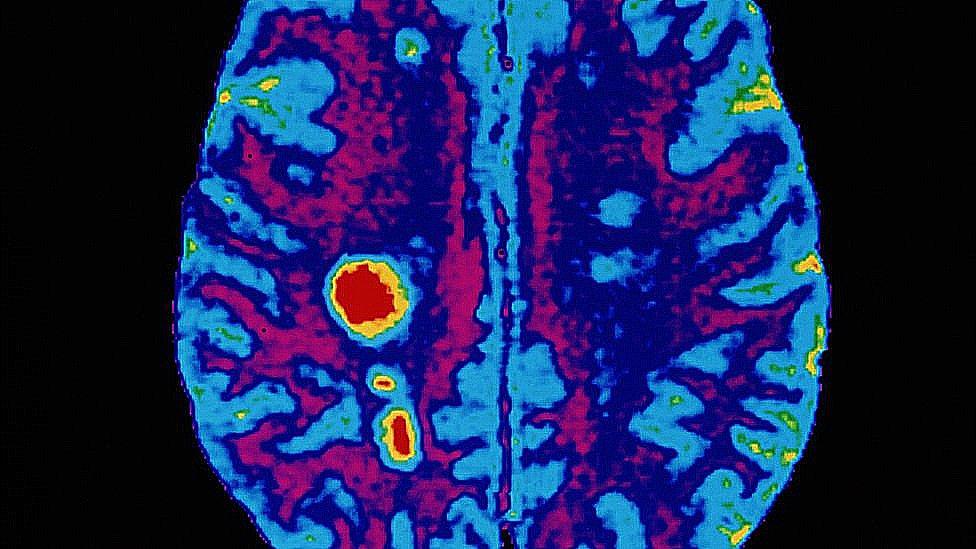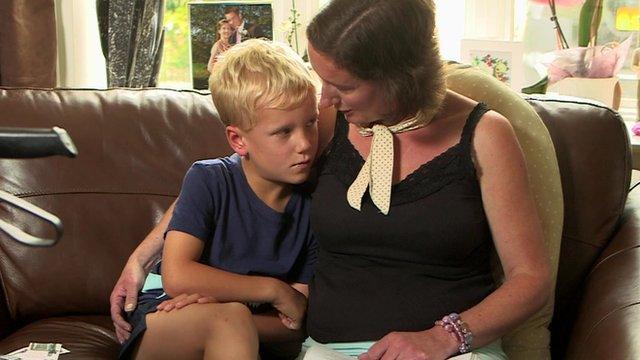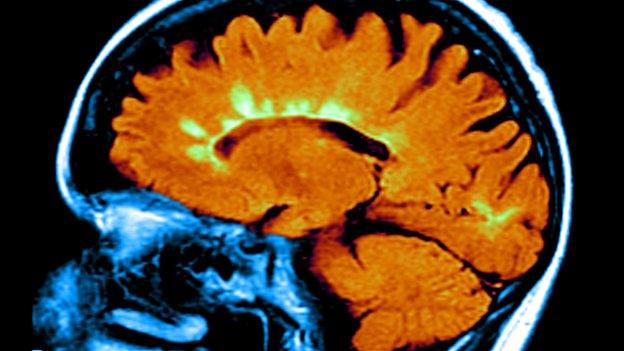Multiple sclerosis patient walks after taking HIV drugs
- Published
Shana Pezaro said she noticed improvements to her MS symptoms within days of taking the HIV drugs
A woman with multiple sclerosis (MS) says her symptoms improved so dramatically she was able to walk again after being prescribed HIV drugs.
Shana Pezaro, 36, from Hove, East Sussex, was given antiretroviral drugs after fearing she may have contracted HIV.
Within days, Miss Pezaro noticed an easing of her MS symptoms.
When a doctor saw her walking up stairs after years of using a wheelchair he set up a clinical trial.
Multiple sclerosis is an incurable condition that can lead to sight loss, pain, fatigue and disability. It affects around 100,000 people in the UK.
Miss Pezaro was a dancer and piano teacher before being diagnosed with MS at the age of 28. The condition affected her hands and feet and she used a wheelchair.

Multiple sclerosis
In MS the coating around the nerve fibres is damaged causing a range of symptoms
Once diagnosed there is no cure, but treatments can help manage the condition
MS affects almost three times as many women as men
Physical symptoms of MS might commonly include vision problems, balance problems and dizziness, fatigue, bladder problems and stiffness and/or spasms
MS can affect memory and thinking and also can have an impact on emotions
(Source: Multiple Sclerosis Society, external)

About a year ago, Miss Pezaro thought she may have been exposed to HIV and her doctor prescribed emergency antiretroviral drugs.
"Three days after I took the drugs I walked up a flight of stairs," she said.
"That was an unbelievable, massive change."

"I didn't do steps," Shana Pezaro said
Prof Julian Gold from the Prince of Wales Hospital in Sydney, saw a video of Miss Pezaro climbing the stairs and a clinical trial was set up to look at the impact of single or combination antiretroviral drugs on MS patients.
An earlier study led by Dr Gold, external conducted with Queen Mary University, London and the University of Oxford showed an association between HIV and MS, external.
They reported antiretroviral treatment may suppress other viruses such as those which may cause MS.
Dr Gold said: "The next stage of the investigation is to use a very similar combination [of HIV drugs] that Shana took. I think that might be quite optimistic."
A spokeswoman for the MS Society said: "Our growing understanding tells us that viruses have a role to play in multiple sclerosis and it will be interesting to see the trial results - positive findings mean another step on the road to beating MS."

Analysis: BBC South East health correspondent, Mark Norman
Shana and Dr Gold would be very keen not to raise any false hope.
The study builds on a lot of work already done with HIV patients who simply don't get multiple sclerosis.
This is really about finding a cause and increasingly people think the cause may be a virus.
When scientists use words like "amazing" and "intriguing" you have to stand up and listen.
- Published30 September 2015

- Published6 August 2015

- Published26 August 2015
